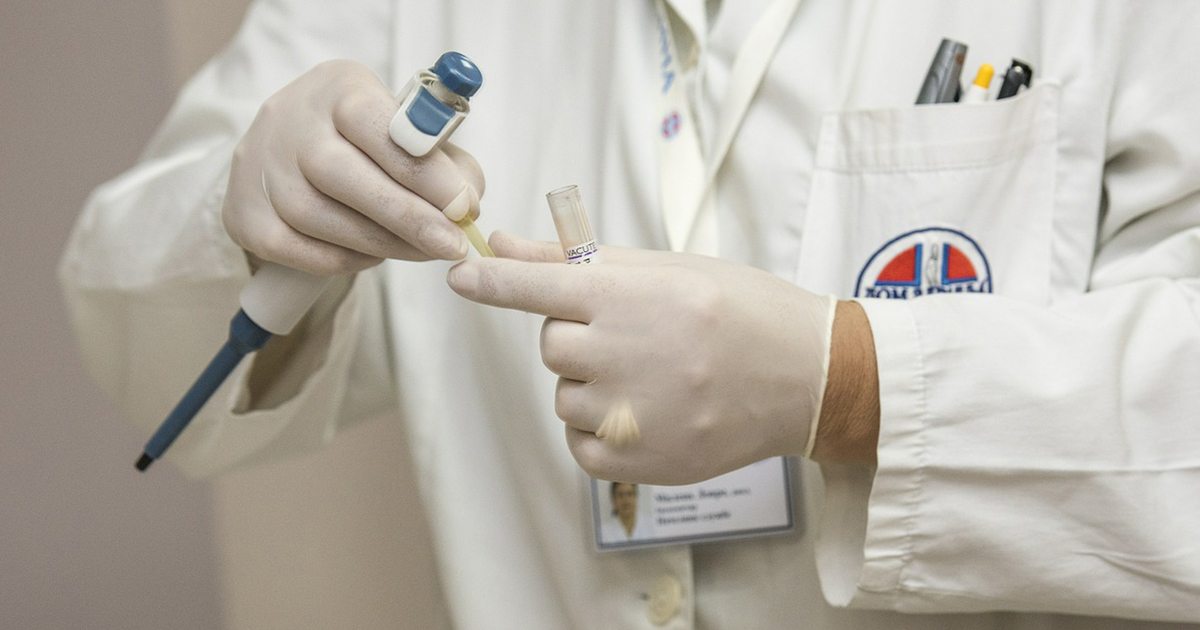Category: Cancer

Cancer Vaccine Shows Promise For Pleural Mesothelioma Patients
A new cancer vaccine that may stimulate the immune system of patients with malignant pleural mesothelioma is entering a new round of clinical testing after promising preliminary results.
The vaccine maker, Aduro BioTech, Inc., announced this month the enrollment of the first patient in a Phase 1B clinical trial for the vaccine CRS-207. Medical researchers at the National Cancer Institute in Bethesda, Maryland and the H. Lee Moffitt Cancer Center in Tampa are participating in the trial.
Malignant pleural mesothelioma is a cancer of the lining of the chest cavity caused by exposure to asbestos. Approximately 2,500 to 3,000 people are diagnosed with mesothelioma each year in the U.S. Most are older workers, retired workers and veterans exposed to airborne asbestos fibers at a workplace decades ago. Mesothelioma takes decades to appear after exposure, but then advances rapidly.
The human immune system is a key line of defense against mesothelioma tumors if medical researchers can harness it to attack cancer cells, using immunotherapy. The vaccine was created using genetically modified strains of Listeria, a common food-borne pathogen known to produce a potent immune response. Researchers at Aduro BioTech engineered the pathogen to make it safe for use as the vehicle for therapeutic vaccines.
An earlier trial using the vaccine showed promising results in prolonging the lives of patients with advanced cancer. While patients with end-stage cancer typically live only three to five months, six of 17 patients who received the vaccine in the initial trial lived 15 months or longer, according to results recently published in the medical journal, Clinical Cancer Research.
As part of the new trial, mesothelioma patients will receive two prime vaccinations with CRS-207 followed by treatment with the standard chemotherapy drugs, pemetrexed and cisplatin.
“This trial will evaluate our vaccine treatment for the first time in frontline cancer patients, and we predict a synergistic benefit to their standard chemotherapy,” said Dr. Dirk Brockstedt, senior vice president of research and development at Aduro.
The vaccine also is being evaluated in a randomized, Phase 2 trial involving patients with metastatic pancreatic cancer.
For more information about the clinical trial, visit ClinicalTrials.gov.

Mesothelioma Cases Increasing in Australia and United States
The first report of a new national registry of mesothelioma in Australia shows that 27 people per million population are diagnosed with mesothelioma. That is nearly double the incidence of mesothelioma in the United States. Still it likely represents an undercount of mesothelioma cases in Australia due to delays in coding some diagnoses. Australia has one of the highest rates of mesothelioma in the world, according to the report by Safe Work Australia, a government agency that promotes worker safety and health.
According to the report, men accounted for 85 percent of the reported cases of mesothelioma since the new registry became operational in July 2010. Three-fourths of the people with mesothelioma were 65 years or older when diagnosed. The most common diagnosis was malignant pleural mesothelioma, a cancer of the lining of the chest cavity. Pleural mesothelioma represented more than nine out of every 10 diagnoses.
The overall rate of mesothelioma has been increasing in Australia since 1982 when data on new cases first became available, according to the report. Similarly, a 2009 report by the National Institute for Occupational Safety and Health indicated that deaths from mesothelioma are still increasing in the United States, based on data from 1998 through 2005. The overall rate in the U.S. is 14 deaths per million population per year. But only a half dozen states in the U.S. have mesothelioma rates of 20 per million population or greater, according to NIOSH.
Building materials containing asbestos and other asbestos products were widely used in Australia just as in the United States in the decades after World War II. As of August 2012, there had been 310 deaths of people diagnosed with mesothelioma in 2011 in Australia. Mesothelioma is an aggressive form of cancer and many people are not diagnosed until the cancer has reached an advanced stage.
Construction workers and people in building trades and electrical trades had the highest likelihood of exposure to asbestos, leading to a mesothelioma diagnosis in Australia. Currently in the United States, an estimated 1.3 million construction workers and general industry workers are potentially being exposed to asbestos, according to the U.S. Centers for Disease Control.
Historically, Australia has been one of the world’s highest users of asbestos, which was mined down under. Because of the long lag time of 20 years to 50 years between exposure to asbestos and appearance of the disease, the report predicts that incidence of mesothelioma in Australia likely still increasing and has not peaked.

FDA Approved Drug For Colon Cancer May Benefit Mesothelioma Patients
A drug that the U.S. Food and Drug Administration recently approved as a first-line treatment for patients with colorectal cancer may also be effective against mesothelioma, researchers say. Mesothelioma is a cancer of the lining of the chest and abdominal cavities and is closely linked to inhaling asbestos fibers.
Mesothelioma often resists standard treatments including the powerful chemotherapy drugs pemetrexed and cisplatin. Researchers in the United States and other countries continue seeking more effective therapies and ways to diagnose mesothelioma earlier when it is more treatable.
One signal that may alert doctors and medical researchers to the presence of mesothelioma at an early stage is epidermal growth factor receptor, a molecule that is overexpressed in many forms of cancer including mesothelioma, colorectal, breast and lung cancers.
The drug cetuximab, an anti-body, interferes with the function of EGFR and induces the death of cancer cells. Its effectiveness in treating certain types of colorectal cancer led the FDA to approve it as a first-line treatment in July. But cetuximab has not been well researched as a treatment for mesothelioma.
In a new study published online in August in the International Journal of Oncology, Japanese researchers report encouraging preliminary results suggesting that cetuximab may be an alternative therapy for patients who don’t respond to standard treatments. The researchers tested the effectiveness of cetuximab at arresting tumors on five lines of malignant pleural mesothelioma cells implanted into lab mice. They observed that cetuximab significantly impeded tumor growth and when applied directly to the chest cavity also improved the survival of the cancer-stricken mice.
The researchers concluded that the results “underscore the promising potential of cetuximab as a new class of therapeutic agent for use against malignant pleural mesothelioma.”
Approximately 2500 to 3000 Americans are diagnosed with mesothelioma each year. Most people diagnosed with mesothelioma are retired workers and veterans who were exposed to asbestos in a workplace or during military service decades ago. The most common form of the cancer is malignant pleural mesothelioma. Disease symptoms typically take 20 years to 50 years to appear.
Mesothelioma is as yet incurable, but there are treatment options including chemotherapy, radiation and surgery if the disease is diagnosed at an early stage.
Know more about mesothelioma and how you can deal with it.

Childhood Exposure to Asbestos Increases Disease Risk Broadly, Including Mesothelioma
Australian researchers offer additional evidence that exposure to asbestos early in life may lead to a variety of serious health issues in addition to mesothelioma and lung cancer.
A new study, published in the American Journal of Industrial Medicine, reports that adults who were exposed to crocidolite asbestos in early childhood have an elevated risk of a range of cancers and heart disease. All forms of asbestos cause cancer in humans, according to the World Health Organization. But this is the first study to investigate cancer incidence among adults exposed as children to crocidolite, also known as blue asbestos.
The researchers at Western Australia Institute for Medical Research analyzed the health data of approximately 2,500 people who grew up in Wittenoom, a now-abandoned mining town in Western Australia where crocidolite asbestos was mined for nearly 20 years.
The researchers observed that women raised in Wittenoom had a 70 to 113 times greater risk of developing mesothelioma, a cancer of the lining of the lung and abdominal cavity, than among the overall population. Men also showed an increased risk of developing mesothelioma as well as an increased risk of brain, colorectal and prostate cancer and leukemia.
The research also suggests a slightly elevated risk of heart disease. Another study from the United Kingdom also recently reported an increased risk of heart disease among those exposed to asbestos.
New York cancer researchers at Mt. Sinai Medical Center are conducting an ambitious study of thousands of people who grew up between 1950 and 1999 in Libby, Montana, then moved away. Lung function develops until a child reaches age 18. Examining the lungs of people who spent their childhoods in Libby and then left may have reveal how much damage occurs from asbestos in childhood, the New York mesothelioma researchers have said.
The federal government has declared a health emergency in Libby, where asbestos contamination was widespread from a vermiculite mine and hundreds have died from asbestos related disease.
Mesothelioma is an aggressive form of cancer and a signature disease of asbestos exposure. Approximately 2,500 to 3,000 Americans are diagnosed annually with the disease and a similar number die. The disease is incurable, though there are treatments including chemotherapy, radiation and surgery.
Most people diagnosed with mesothelioma are older workers, retired workers or veterans who were exposed to asbestos fibers in the workplace or military service. Microscopic asbestos fibers when inhaled can lodge in the lungs and remain there a lifetime causing inflammation that eventually leads to asbestos related disease.

Daily Aspirin May Reduce Cancer Deaths, American Cancer Society Says
A daily aspirin may help prevent cancer, according to American Cancer Society researchers.
A large new study, published online this month in the Journal of the National Cancer Institute, offers more evidence of a positive association between taking an aspirin and modestly lower cancer mortality. Still, questions remain about the size of the health benefit, the authors of the study say. No one should start an aspirin regimen without consulting a doctor first because even low dose aspirin does cause stomach bleeding in some patients.
American Cancer Society researchers analyzed health information from more than 100,000 predominantly elderly participants who reported taking a daily aspirin and did not have cancer at the start of the study. The researchers tracked the study participants for up to 11 years.
They found daily aspirin use was associated with a 16 percent lower overall risk of dying of cancer, among people who reported taking aspirin daily for at least five years and among those who reported shorter-term daily use.
The reduction in cancer mortality reported in the current study is notably smaller than the 37 percent reduction suggested in a recent pooled analysis of 51 randomized trials published in The Lancet, a British medical journal. But the large size of the current study is a strength in determining how much daily aspirin use might lower cancer mortality.
“Although recent evidence about aspirin use and cancer is encouraging, it is still premature to recommend that people start taking aspirin specifically to prevent cancer,” American Cancer Society researcher Eric J. Jacobs, Ph.D., who led the study, said in a prepared statement. “Even low dose aspirin can substantially increase the risk of serious gastrointestinal bleeding. Decisions about aspirin use should be made by balancing the risks against the benefits in the context of each individual’s medical history.”
Earlier this year, researchers at The City College of New York reported in the ACS Medicinal Chemistry Letters that they had developed a new aspirin compound that curbed the growth of 11 different types of human cancer cells in the laboratory. Some of the cancers controlled included pancreatic cancer, lung cancer and leukemia. Lung cancer and mesothelioma are cancers caused by inhaling asbestos fibers. Mesothelioma is a cancer of the lining of the chest cavity and abdominal cavity.
In the United States, approximately 2,500 to 3,000 people are diagnosed with mesothelioma each year. The disease is incurable, though there are standard treatments to manage the disease including chemotherapy, radiation and surgery.
Most people diagnosed with mesothelioma are older workers, retired workers or veterans who were exposed to asbestos fibers in the workplace or military service. Microscopic asbestos fibers when inhaled can lodge in the lungs and remain there a lifetime causing inflammation that eventually leads to asbestos related disease.
For more information about mesothelioma treatments, Click Here.
Free Mesothelioma Patient & Treatment Guide
We’d like to offer you our in-depth guide, “A Patient’s Guide to Mesothelioma,” absolutely free of charge.
It contains a wealth of information and resources to help you better understand the condition, choose (and afford) appropriate treatment, and exercise your legal right to compensation.
Download Now